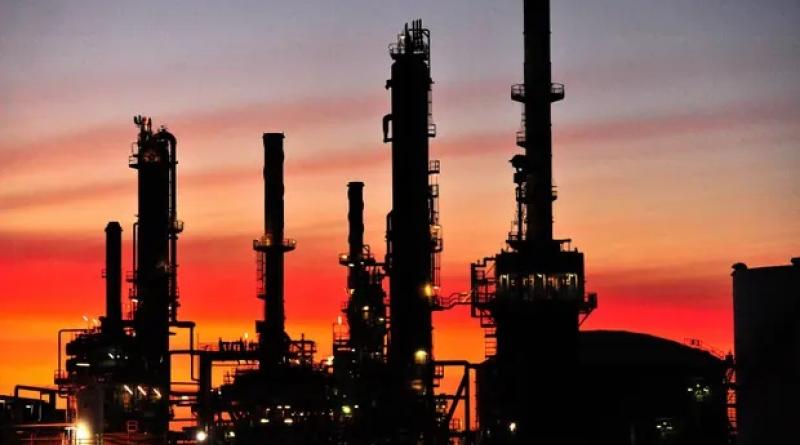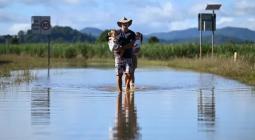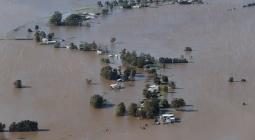Anthony Albanese’s latest plan to subsidise foreign coal and gas companies is just absurd

Fossil fuel subsidies are a stupid idea. We aren’t so much decarbonising our economy as turbocharging its carbon intensity
Just as a fish can’t taste the water it swims in, it is hard for Australians to notice how bizarre our climate and energy policy debates have become. We have seemingly abandoned economics, climate science and even opinion polling when it comes to identifying options for reform. The only way forward is what the fossil fuel industry tells us to do. Imagine if we had taken that approach to tobacco control.
Think I’m exaggerating? Well, before I try to explain the absurdity of the Albanese government’s latest plan to subsidise the coal and gas industries, let’s take a quick tour of the climate and energy policy options that dare not speak their name.
Carbon taxes give a competitive advantage to energy generators that produce less carbon pollution and give individuals and companies an incentive to change their behaviour. And get this, they generate revenue for the government as well. In 2013-14 the Australian carbon price raised $7.3bn before being scrapped by the Abbott government. This is revenue governments can use to help individuals or companies cope with higher energy prices or invest in energy saving technology. New Zealand has a carbon tax, as do Europe and California. Needless to say, the sky didn’t fall down nor did their economies didn’t collapse, but they did manage to reduce their fossil fuel use and grow their economies just as Australia did between 2012 and 2014.
Fossil fuel subsidies are a stupid idea, unless you want more fossil fuels. Australia spends around $11bn a year on them. On top of that, Laborhas committed $1.9bn to the Northern Territory’s Middle Arm Petrochemical plant which will convert fracked gas from the Betaloo Basin into gas for export, fertiliser and plastics. Not only are there 114 new gas projects and coalmines seeking approval in Australia, the government is subsiding the construction of factories that will use those fossil fuels. We aren’t so much decarbonising our economy as turbocharging its carbon intensity.
The government’s own projections show that fugitive emissions from fossil fuels are set to increase to 2030. How does the government propose to address this? With carbon offsets. Mostly from trees and soil. To be clear, carbon offsets don’t decarbonise the economy and the risk with trees is that they are increasingly burning down as the climate crisis intensifies.
After decades of research showing the best way to reduce greenhouse gas emissions is to tax fossil fuels and subsidise renewables, Australian governments are still fixated on “sequestering” all the carbon pollution from our existing and planned new fossil fuel projects. Indeed, the Climate Change Authority, chaired by former gas executive, Grant King, recently “self-initiated” research into how many millions of tonnes of carbon can be stored in trees and underground. The CCA is silent on Australia’s fossil fuel expansion, but has released three reports since the election that promote offsets. Talk about not mentioning the war.
Advocates of carbon credits instead of carbon taxes claim to want climate ambition but systematically ignore the fact that most carbon credits are a “sham”. They are also notably silent on the way carbon credits are being used to justify new fossil fuel projects, demonstrating the power of the fossil fuel industry. If we were serious about reducing emissions, we would want to both sequester carbon and stop new sources being built. It’s no coincidence that since polluters can simply buy “carbon credits”, investment in solar, wind and batteries is at a five-year low.
Windfall profits taxes work. Australia is the worlds’s third-largest exporter of fossil fuels and, as such, the companies that sell our fossil fuels are making enormous profits off the back of the surging prices caused by Russia’s invasion of Ukraine. But while Saudi citizens aren’t struggling with how to cope with high oil prices and the Norwegian sovereign wealth fund managed to salt away an extra $42bn last year, our policy settings so outrageously favour the fossil fuel industry that ordinary Australians are struggling with higher petrol, gas and electricity prices while the foreign-owned fossil fuel companies are struggling to believe how little Australian tax they pay. Joseph Stiglitz, a Nobel prize-winning economist says a windfall profits tax in Australia is a “no brainer”, yet our political class is determined to pretend it is a bad idea.
Which brings me to the latest plan to cap some coal and gas prices at what are still bumper prices and for Australian taxpayers to “compensate” the foreign fossil fuel companies for interrupting their profiteering.
To be clear, what we should do is scrap the $11bn a year we spend on fossil fuel subsidies, impose a carbon tax like the successful one we had in 2012 to 2014 and stop wasting money on dodgy carbon offsets. We could give that extra money to low-income earners, invest in renewables, decarbonise the economy and still cut the budget deficit.
The UN secretary general, António Guterres, says the world needs to “end our global addiction to fossil fuels” yet Australia is not only planning a massive expansion of coal and gas, it’s planning to subsidise that expansion while providing a nice big blanket of state-sanctioned greenwash. The weirdest thing of all is not how backwards our policies have become, but the threats polluters make to get their way. Apparently if we started to tax them they would stop building new coal and gas projects … which is of course, what tackling climate change would look like. Needless to say, we cant talk about that.
-
Dr Richard Denniss is the executive director of the Australia Institute, which is hosting the 2023 Climate Integrity Conference at Old Parliament house on 16 February
cover photo: Australia currently spends around $11bn a year on fossil subsidies. Photograph: Bloomberg/Getty Images





